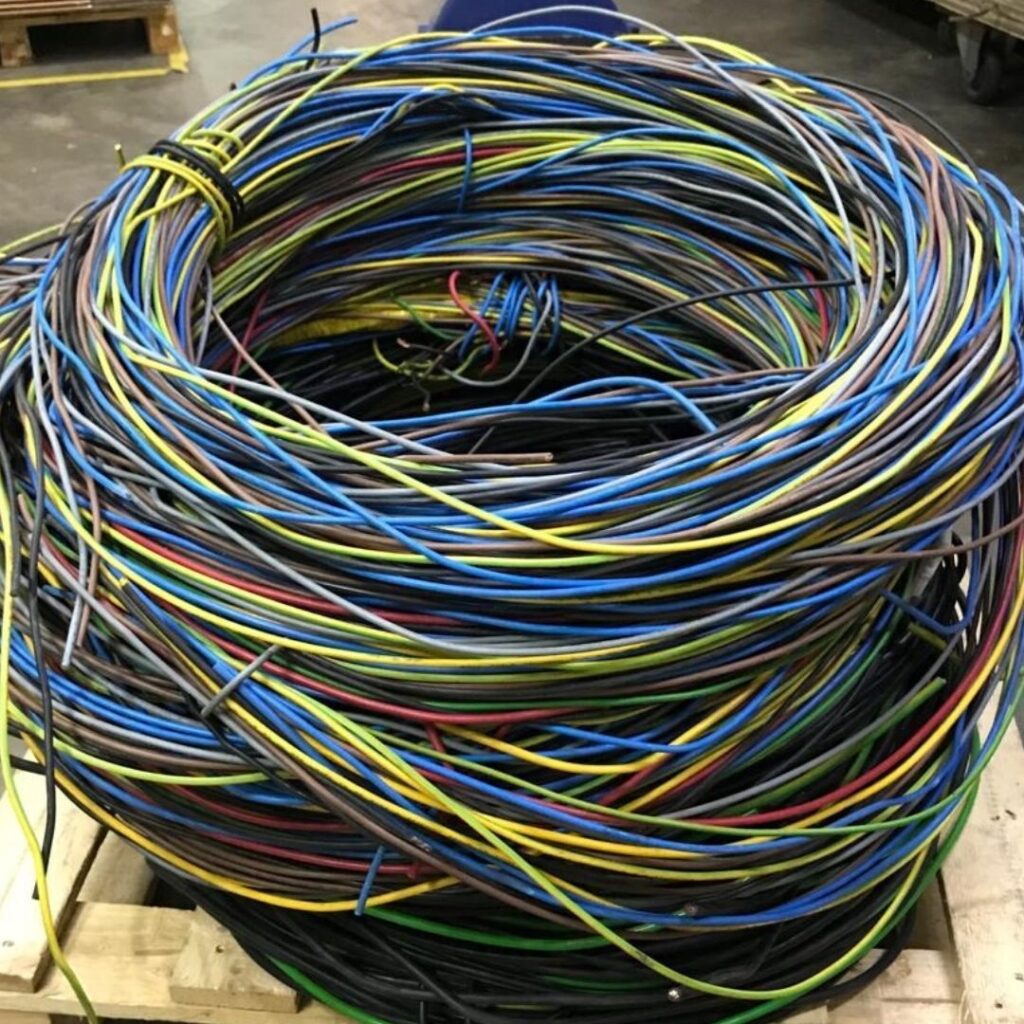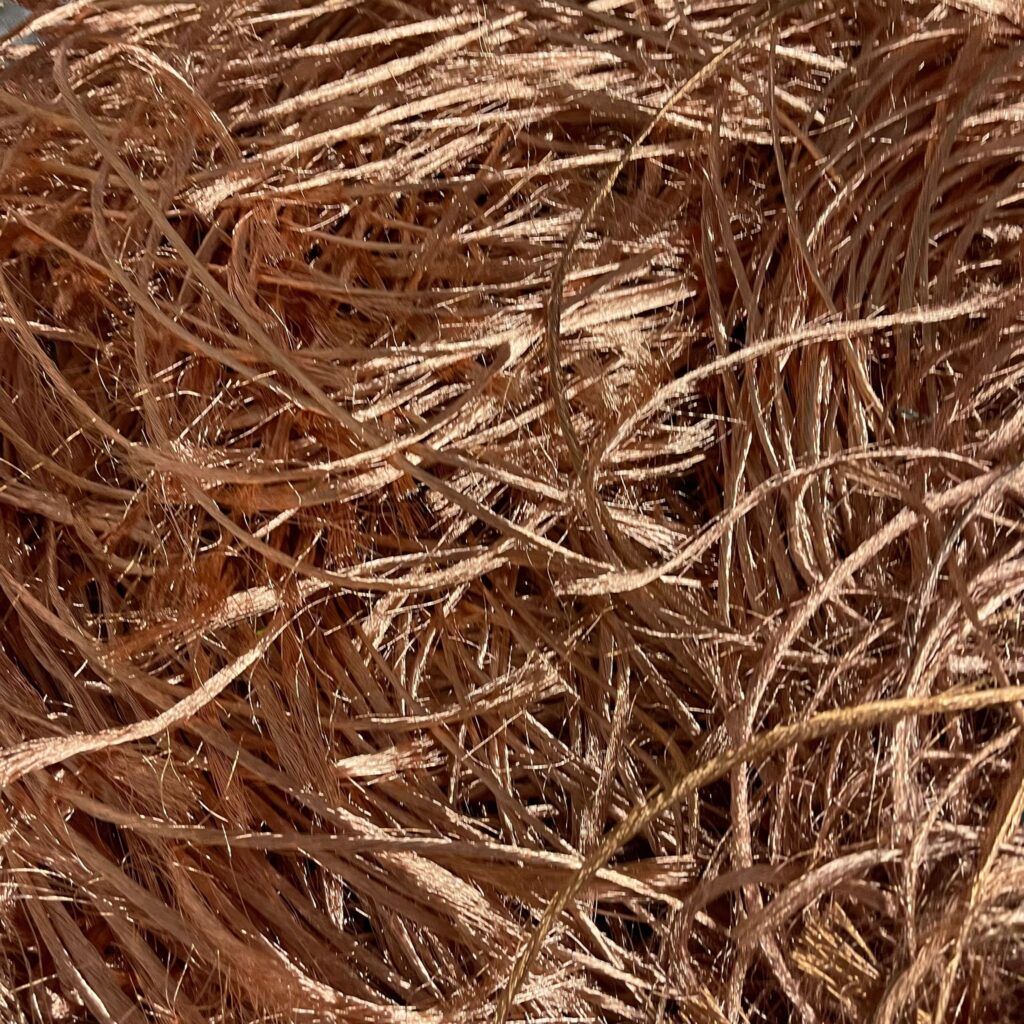Educate – Sort – Recycle
729 Copper Wire
Learn how Gee Hoe Seng Pte Ltd (GHS) handles the collection and recycling of 729 copper wires in Singapore responsibly and efficiently.
729 copper wires are widely used in electrical and industrial applications due to their high conductivity and durability. With a high copper content, these wires are highly recyclable when properly prepared for recycling.
Educate – Sort – Recycle
Is it Recyclable?
Yes — 729 copper wires are recyclable, but the insulation must be removed before recycling to recover pure copper efficiently.
Each 729 wire typically consists of seven strands of copper wire encased in insulation (e.g., 1.5mm², 2.5mm², 4mm², 6mm²). The copper core can be recovered and reused, while the insulation is treated through licensed waste channels.
At GHS, we process and recycle copper wires of all grades, ensuring that both valuable metals and non-recyclable residues are managed responsibly.
Educate – Sort – Recycle
Why and What Parts Can Be Recycled?
Discover why copper wire recycling is valuable and how to prepare your wires for collection.


